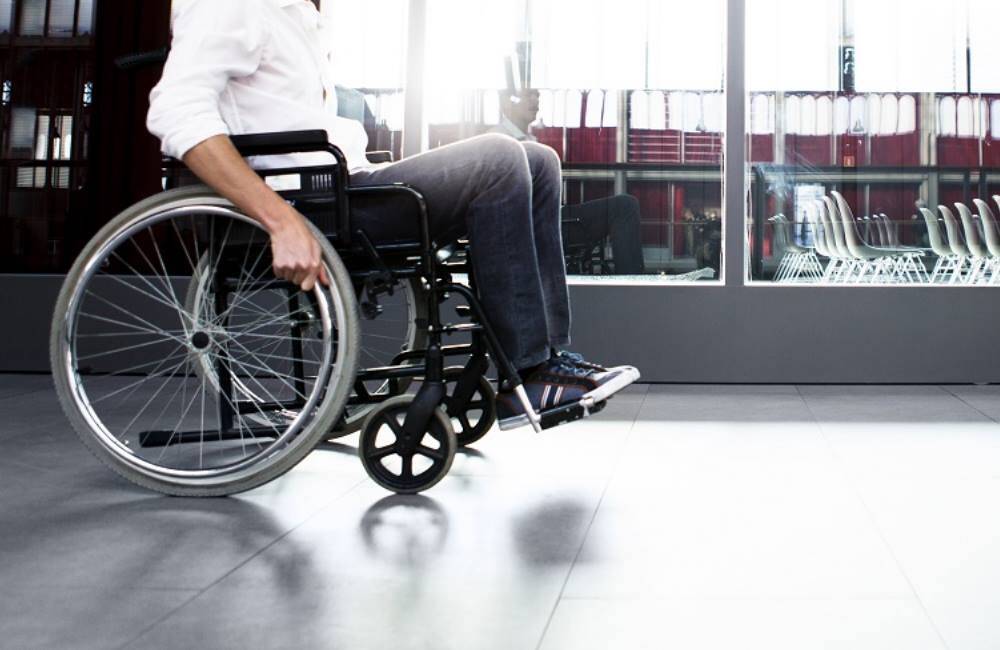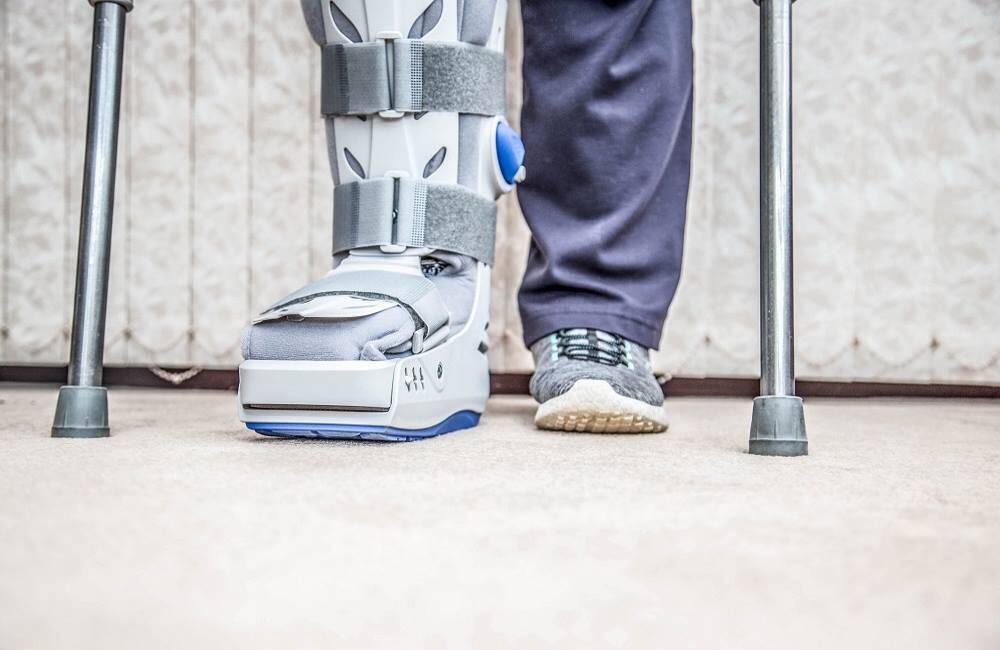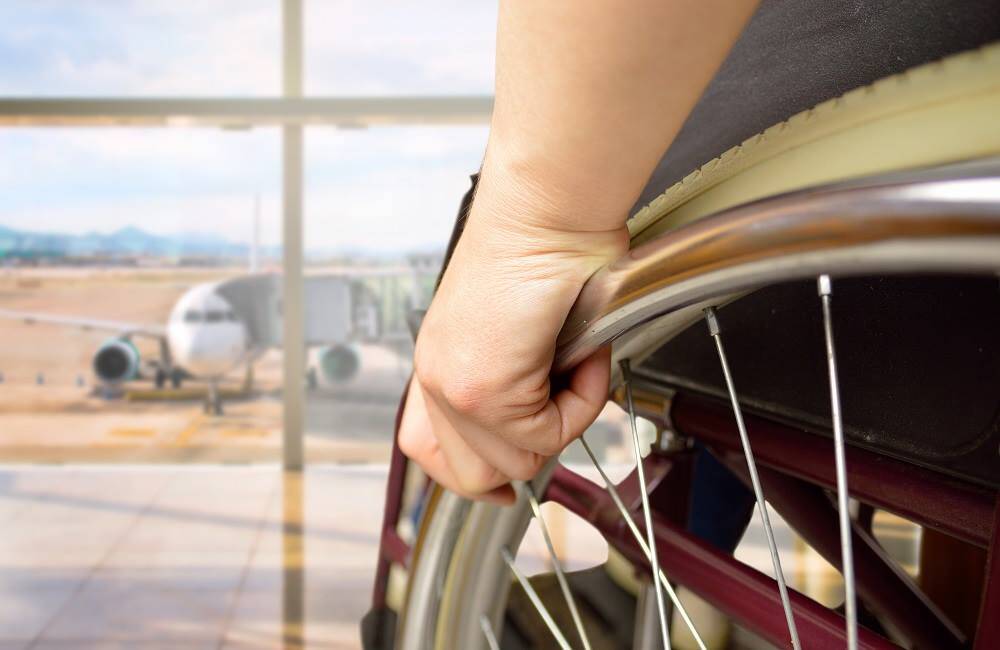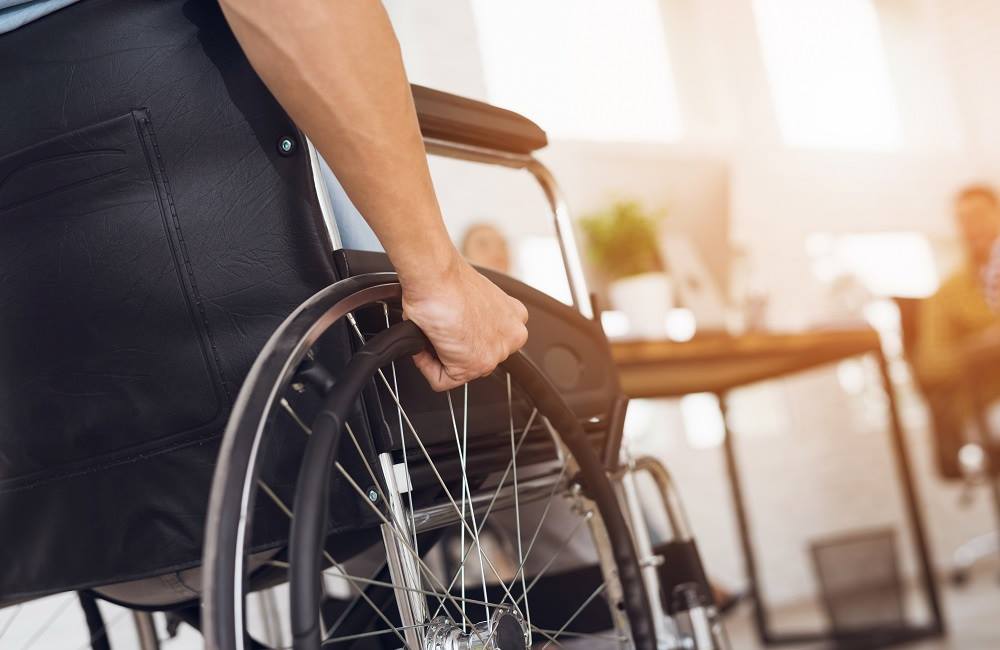
by Flying Angels Editorial Team | News & Resources
Those who have become a medical escort take on a job that comes with many responsibilities and a great deal of pressure. But for those with the proper training and right kind of experience and personality, it’s a rewarding field to enter.
What Does a Medical Escort Do?
Medical escorts are highly trained, experienced nurses who travel with patients, typically on a commercial flight. In the case of Flying Angels, which specializes in medical transport, all flight nurses have years of experience working in emergency rooms and acute care.
Medical escorts can also work for emergency services. For example, they accompany people from the scene of an accident or a natural disaster, ensuring they remain stable until arriving at a hospital. But, typically, most medical escorts work in the non-emergency medical transport field.
In either case, the job can be daunting, as medical escorts typically travel alone with a sick or injured patient at 35,000 feet.
Job Duties of Medical Escorts
A medical escort’s job is complex. In a non-emergency situation, they may travel with patients from their home to the airport. They then stay with them as they get through the airport to their gate, working with airport staff to make the journey as easy as possible. That includes issues such as early boarding and access to comfortable lounges if a long wait is required. They also assist in disembarking from the plane when they arrive at their destination.
The most critical component of the job is during air travel. Here, medical escorts take on the sole responsibility of monitoring and maintaining their patient’s health. They manage the administration of any medications and assist patients with issues such as eating or going to the bathroom.
All this requires experience and skill in handling any medical situation or emergency that may arise. They also must have expertise in providing medical care at high altitudes and carry whatever medical equipment and medication a patient might need as they fly.
Education Needed for Medical Escorts
Medical escorts are expected to have at least a Bachelor of Science in Nursing. Such programs include coursework in physical and social sciences, as well as critical thinking and communication. Medical escorts also must have the leadership abilities to take charge and manage the patient’s situation throughout the travel process.
All medical escorts must have Registered nursing (RN) license to practice.
There also are certificates that can be earned to demonstrate the knowledge and skill needed to work as a medical escort. For example, medical escorts can earn a Certified Flight Registered Nurse (CFRN) designation from the Board of Certification for Emergency Nursing. The Air and Surface Transport Nurses Association offers guidance in earning certification and other issues surrounding medical escorts.
Experience is the Key
For medical escorts, the real key to success is both the education and certifications listed above, as well as a wealth of experience.
Typically, a medical escort requires at least three years of experience working in an intensive care unit or emergency room. In the case of Flying Angels, five years of experience are required.
Such experience is necessary to become a qualified, trusted medical escort. Nurses who work in acute care learn critical thinking skills, how to handle many patients, improve their triage skills and hone their ability to make good assessments and decisions in a fast-paced environment.
Becoming a medical escort is both a challenging and rewarding experience. It’s the perfect job for trained experts who want to use their professional talents to provide medical assistance and support for those who need it when traveling.

by Flying Angels Editorial Team | News & Resources

At some point, you may end up facing the task of having to travel when you’re injured. It can seem daunting, but it’s something that can be done if you take the time to plan it carefully.
Travel When You’re Injured
Professional services such as Flying Angels specialize in assisting people with injury or illness in managing travel and taking commercial flights. If you are planning to travel when you’re injured, getting professional assistance is often the right choice.
Here are a few travel tips to keep in mind as well.
Check with Your Doctor
The first rule of travel when you’re injured is to make sure your doctor thinks it’s OK. Until you get that green light, don’t make any air travel plans. You’ll also want to talk to your doctor and get advice for anything they feel you should do to prepare for the trip.
Call Ahead
Many airports and airlines will provide specialized services for those traveling with an injury. That includes wheelchairs to take you to the terminal, handling your baggage for you and giving you a chance to board the plane first (and, usually, get off last). Once you arrive at your destination, you also can get help getting to your ground transportation.
Pack Light
While you can get assistance with your bags, make it easy on yourself by packing as lightly as possible. This will help at every phase of your trip. One rule of thumb is to not pack more than you can handle yourself, because at some point – even with assistance – you might have to. Keeping that mind will help you keep your packing at a minimum.
Recognize Your Limitations
This goes together with asking for assistance – as in, always ask for assistance if needed. Don’t push yourself. Recognize before you leave for the airport what you can and can’t do and keep yourself within those limits. This is one of the most important considerations if you plan to travel when you’re injured and don’t hesitate or be embarrassed to ask for help.
Have Patience, And Take Your Time
This is the trip where you want to leave early and have plenty of time to get around the airport. Don’t get into a position where you feel rushed. You’ll need time to navigate the airport and get to the gate on time. You’ll feel much less stress if you’ve given yourself plenty of time. Also, grant yourself lots of patience. Some things will just take longer to do and there’s nothing to be done about it.
These days, traveling when you’re injured is completely doable. All it takes is the right planning and a good attitude. And if you need professional help, don’t hesitate to contact Flying Angels. Helping people in these type situations is what they do best.
Safe Medical Travel with Flying Angels

by Flying Angels Editorial Team | News & Resources

It’s easy to get terms confused when it comes to understanding different jobs in the nursing profession. Two of the jobs often mistaken for one another – or used interchangeably – are flight nurse and travel nurse.
However, there are big differences. A flight nurse specializes in providing medical care for patients during a flight. A travel nurses goes to different hospitals, helping provide care to patients.
Here’s a more detailed look at the two jobs.
What a Travel Nurse Does
Travel nurses sign up for the job of moving around to work at hospitals in different areas, helping the team at each facility provide care for patients.
In many cases, travel nurses are needed because a hospital is facing a nursing staff shortage. In the past, this often meant hospitals in rural areas. However, with the fast growth of the healthcare industry in recent years, nursing shortages now exist in places all around the country.
Travel nurses are not trained to work on an aircraft. They also may not have the emergency medical services training that a flight nurse has. Depending on the job requirements, some travel nurses may be LPNs or allied health professionals.
The assignments for travel nurses vary in length. In most cases, their temporary stint at a hospital will last anywhere from one month to as long as a year.
What a Flight Nurse Does
A flight nurse, such as those who work with Flying Angels, are highly trained nurses with experience in emergency care.
Flight nurses have extensive training in handling medical emergencies while in an aircraft. They are all registered nurses, and in many cases have advanced degrees. In the case of Flying Angels, nurses also have extensive emergency room experience.
This training and experience is needed to provide quality care for patients who are flying. In addition to having the ability to handle medical emergencies if they should arise, flight nurses also continually checking a patient’s condition and understand the patient’s needs in terms of medication and tolerance for air travel.
They also may consult with a patient’s physician to get a thorough understanding of a patient’s medical conditions, procedures they may have under gone and any medication needs they have during the flight.
In short, flight nurses are highly specialized medical professionals with the training and experience needed to handle a very specific situation: a patient traveling on an aircraft. Travel nurses have varying degrees of training and experience and work temporarily in hospitals to ensure quality care standards are maintained even if the hospital is short staffed.
While both involve professional nurses, they are very different jobs.
Day in the Life of a Flight Nurse

by Flying Angels Editorial Team | News & Resources
Travel may have seemed like an impossible dream for those with disabilities not that long ago. But today, disabled travel on commercial airlines is easier than ever.
Disabled Travel Tips
From helpful airlines to destinations that have worked hard to make accommodations and sightseeing spots accessible to those with disabilities, there’s never been a better time for disabled travel.
Many of the tasks below are handled by a professional flight coordinator for those who use medical transport services. With years of experience working with airlines and others in the travel industry, Flying Angels has the expertise to make the trip smooth and comfortable. Here are some useful tips If you choose to handle the travel plans on your own.
Helpful Airlines
By calling ahead, airlines can make your visit to the airport for disabled travel much easier. In some cases, an airline will dispatch an employee to meet you and assist you throughout your trip through the airport. That can include offering a wheelchair and help when traveling through security. Just be sure to find out if there is an extra charge for this service – many airlines will do it for free.
Accessible Hotels
As with the airlines, most hotels at all price ranges have made things easier for disabled travel. Again, it’s advisable to call them in advance and let them know if you will need any special services. These can include booking you in a room that is built for use with a wheelchair. This also can include room service beyond the usual hours.
Tour Groups
Some tour groups now focus on offering services for disabled travel. That can make the complexities of getting around a foreign city that much easier. These tour groups can range from African safaris to visits to South America, Europe and Asia. You’ll want to ensure that the guide is a professional with training in working with the disabled. You’ll also want to know in advance the exact route of the tour and whether it will be 100% disabled travel or mixed with able-bodied tourists.
Work with a Service
An NEMT service such as Flying Angels specializes in making travel for those with disabilities as easy as possible. In addition to working with hotels and airlines, they also provide flight nurses who can attend to your needs while in transit. They provide expert medical care, relieve you of the stress of planning everything yourself and give you the peace of mind of having an experienced, trained medical professional with you throughout the flight.
Keeping these tips in mind can lead to a fantastic trip for you and your loved ones. The possibility of seeing the world or visiting family in faraway places is greater than ever.

by Flying Angels Editorial Team | News & Resources

Making vacation plans when you have limited mobility can present many challenges. Not all vacation spots have done a good job offering access to those who aren’t fully mobile. Fortunately, many places have.
Limited Mobility Travel
Around the world, cities, vacation spots and entertainment venues have gone the distance in offering excellent services for those with limited mobility. For this Memorial Day weekend, there are plenty of opportunities.
Getting there can be handled by professionals with expertise in non-emergency flight coordination, ensuring a comfortable and safe trip. But where to go?
Here are some choices.
Washington, D.C.
As the nation’s capital, Washington D.C. has set the standard for making national monuments, parks and buildings as accessible as possible for the disabled and those with limited mobility. Those include the Washington Monument, Lincoln Memorial and the area’s many museums. The White House and Arlington Cemetery are also accessible by bus. It’s a great trip for everyone who lives in the United States, and it’s one that has been made especially welcoming to those with disability concerns.
Dublin, Ireland
Most old European cities are tough on those with injuries or limited mobility. But Dublin has kept its charm while also opening up access to those needing assistance, including visitors in wheelchairs, according to the Curbfree website. It helps that the city is relatively small and flat, making it that much easier to navigate.
Beach Resorts
Beach resorts from Florida to California and Hawaii have a reputation for offering great access to all the amenities the location has to offer. And what’s better for Memorial Day Weekend than the beach? Visitors have access not only to the beach but also the entertainment put on by the resort, including shows and concerts. It’s important to check ahead as each resort is different, but most are safe, accommodating and easily accessible.
Caribbean Cruise
Research must be done in advance, but many cruise lines are equipped for those who are disabled or have mobility challenges. Much like the resorts, cruise ships offer a great deal of entertainment in a compact area that is easily navigated. Disney Cruise Lines is known for offering not only accessible ships but also accessibility at the destinations where they make port.
European River Cruises
These boats are smaller, and you can watch the beautiful scenery of Europe gently slide by from the comfort of the ship deck. Many European river cruise boats are like floating hotels (like their cousins on the Caribbean), and it makes for a comfortable way to see historic sites.
London
Like Dublin, this European city retains its Old World charm while also being thoroughly modern. The city has done an excellent job of making many sites accessible to those with mobility issues. There also is plenty of public transportation which also has good access.
Popular Vacation Spots
Many of the big vacation spots have excellent access for older guests, those with disabilities and those with mobility issues. In addition to Disney, they include places such as: Branson, Missouri; Palm Springs, Calif.; and the historic districts of Charleston, S.C.
For those with limited mobility, vacation planning can be a challenge. But there’s never been a time where there were more places you can visit and enjoy.
Accessible Adventure Tours
Adventure doesn’t have to be off-limits for travelers with limited mobility. Many tour operators now offer accessible adventure tours that include activities like wheelchair-friendly hiking trails, adaptive skiing, and accessible safari tours. These experiences are designed to ensure that everyone, regardless of their mobility level, can enjoy the thrill of adventure.
Cultural and Historical Explorations
Cities rich in history and culture like Rome, Paris, and Tokyo have made significant improvements in accessibility. These cities offer guided tours with accessible routes, ensuring that travelers with limited mobility can explore ancient ruins, museums, art galleries, and iconic landmarks without worry.
Specialized Accommodations
From hotels with adapted rooms to resorts that offer mobility aids like beach wheelchairs, the hospitality industry is increasingly catering to travelers with limited mobility. These accommodations go beyond basic accessibility to provide a comfortable and hassle-free stay, ensuring that all amenities are within reach.
Technology and Apps
Technology plays a crucial role in enhancing travel experiences for those with limited mobility. Various apps and devices now offer real-time information on accessible routes, transportation options, and nearby accessible facilities, making it easier to plan and enjoy a trip.
Community and Support
Joining communities of travelers with similar mobility challenges can provide valuable insights and support. These communities offer a platform to share experiences, tips, and recommendations on accessible destinations, accommodations, and activities.
By expanding travel options and focusing on accessibility, the world becomes more inclusive, allowing everyone to explore and experience new destinations. With careful planning and the right resources, travelers with limited mobility can enjoy memorable adventures that cater to their needs and interests.

by Flying Angels Editorial Team | News & Resources

Air travel is useful in many situations and one that is increasingly in demand. An Air Ambulance Alternative for aging parents helps get them to their destination safely.
If you have an older parent who is beginning to struggle with mobility, you’re part of a growing demographic in the United States. As of the 2020 Census, about 1 in 6 people, or 16.8% of the U.S. population, were 65 and over, highlighting the significant aging of the population. This increase is driven by the aging baby boomers, with projections suggesting a continued rise in the senior population.
What Is An Air Ambulance Alternative?
More and more children face issues on how to provide assistance to their aging parents. Many parents are still able to take care of their day-to-day lives in their homes. But commercial airline transportation increasingly becomes an issue for aging parents.
For those faced with this issue, it’s comforting to have a service available that provides professionals who have expertise in transportation arrangements and providing medical services.
Here are some of the areas that an air ambulance alternative company such as Flying Angels can support families who requires assistance for aging parents.
Medical Appointments
Many Americans miss medical appointments simply because they do not have the ability to get to the doctor’s office. An NEMT company can handle that task. Flying Angels especially focuses on the arrangements needed for air travel to reach long distance appointments.
Moving Parents
This is one of the most common issues faced by the children of aging parents. Older individuals often develop conditions such as dementia or physical disabilities that require transportation to appointments. Facing that situation, children will often decide to move their parents closer to where they live.
That is a wise move, but it requires complex medical transport plans. It also goes smoother with qualified medical personnel involved. Flying Angels handles all the travel arrangements and provides an experienced flight nurse for the trip. They manage all the medical needs during a trip and ensures they arrive safely at their destination.
Vacations
In some cases, family gatherings happen far from where the aging parents live. Air Ambulance Alternative services can get them to their destination both on time and safely. With Flying Angels, services also are provided to Hawaii and internationally. Parents don’t need to miss out on family vacations and with the proper planning, this service can prove invaluable.
Getting Back Home
This actually applies to people of all ages. But it can provide special comfort to those with parents who are still able to travel. Flying Angels, with contacts around the world, has the ability to get people back to the United States if they are injured or have a medical emergency while traveling.
Understanding the Scope of Services
When considering an Air Ambulance Alternative for your aging parents, it’s essential to understand the full scope of services provided. This service is not just about transportation; it’s about ensuring a safe, comfortable, and medically supervised journey for your loved ones. Whether it’s a trip for a special family occasion or a necessary medical appointment, the service tailors its approach to meet the specific needs of the elderly.
The Importance of Advanced Planning
Advanced planning plays a critical role in utilizing an Air Ambulance Alternative service effectively. By coordinating with the service provider ahead of time, you can ensure that all medical and logistical needs are meticulously mapped out. This planning includes detailing the medical history and requirements of the senior, their mobility limitations, and any special accommodations they might need during the journey. Such proactive planning not only ensures a smoother experience but also provides peace of mind for the family and the individual.
Comprehensive Support Beyond Transportation
The service extends beyond mere transportation; it offers comprehensive support throughout the journey. This includes pre-flight health assessments, in-flight medical care, and assistance with all aspects of the travel process, including luggage handling, boarding, and post-flight transitions. The aim is to provide a seamless experience that caters to the medical and personal needs of the senior, ensuring they feel supported, secure, and comfortable every step of the way.
If you’re considering travel options for yourself or your loved one, Flying Angels offers a compassionate and professional solution. Contact Flying Angels today to discuss your needs with a flight coordinator and learn how they can assist in providing a safe, comfortable journey.





